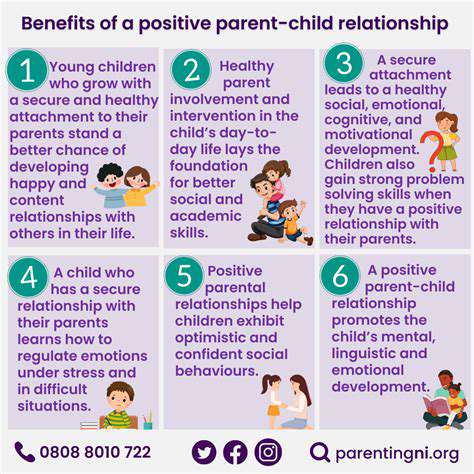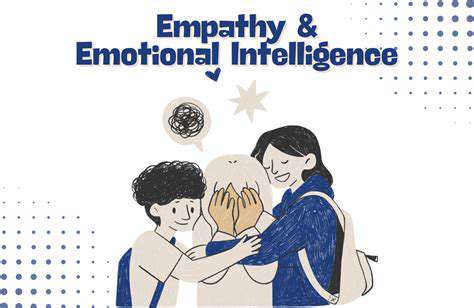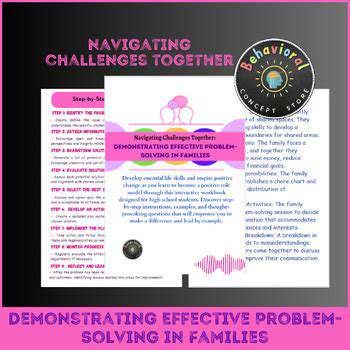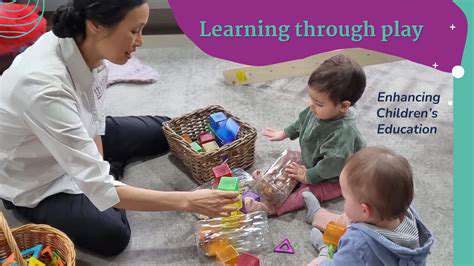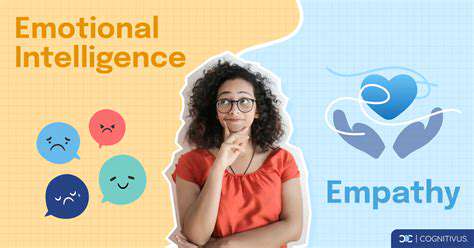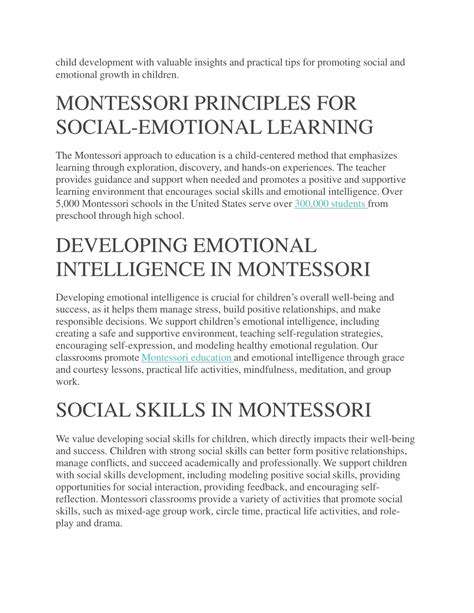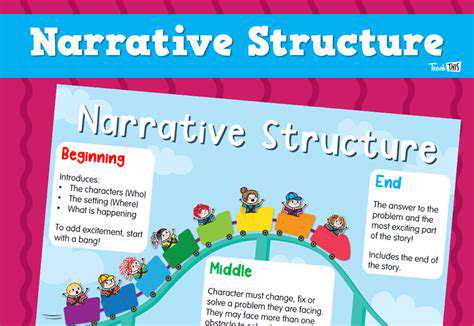Navegando pelos marcos do desenvolvimento infantil: O que esperar e como apoiar
Crawling: Mastering Mobility
Crawling is a significant milestone in a toddler's physical development, representing a crucial step towards greater independence and exploration. This stage, often occurring between 6 and 10 months, marks a shift from primarily lying down to actively moving around their environment. The development of crawling involves significant muscle coordination, as toddlers must learn to use their arms and legs in a synchronized manner to propel themselves forward. This process strengthens their core muscles, improves balance, and lays the foundation for more complex movements to come.
Observing a child's crawling progress can offer insights into their overall development. A child who is consistently practicing crawling demonstrates an aptitude for problem-solving and exploration, as they navigate obstacles and learn to adapt their movements. This physical mastery is closely linked to cognitive development, as they begin to form a mental map of their surroundings and understand spatial relationships.
Walking: Taking the First Steps
Walking is a momentous achievement for toddlers, marking a significant leap in their physical capabilities. This milestone, typically occurring between 9 and 15 months, signifies a major shift in independence and mobility. The development of walking involves intricate coordination of muscles, balance, and the integration of sensory information from the eyes, ears, and body. It's a complex process requiring significant practice and fine-tuning.
Parents can support their child's walking journey by providing a safe and stimulating environment. Encouraging exploration and offering opportunities to practice walking, while ensuring safety precautions are in place, can significantly contribute to a child's confidence and competence in this crucial developmental stage.
The Importance of Fine Motor Skills
While crawling and walking often dominate the attention in discussions of toddler milestones, the development of fine motor skills is equally crucial. These skills, involving the use of smaller muscles in the hands and fingers, are essential for tasks like grasping, manipulating objects, and eventually, writing and drawing. Toddlers typically start developing these skills by grasping toys, experimenting with different textures, and using utensils for eating.
Pincer Grasp and Beyond
The pincer grasp, where a toddler uses their thumb and index finger to pick up small objects, is a notable milestone in fine motor skill development. This ability allows toddlers to engage in more intricate play activities, like building with blocks, playing with puzzles, and even drawing. The development of the pincer grasp is a significant step toward greater dexterity and independence in manipulating their environment.
As fine motor skills continue to develop, toddlers will progress from simple grasping to more complex movements, such as buttoning, zipping, and using scissors. These skills, though seemingly simple, are essential building blocks for future academic and daily living skills.
Gross Motor Skills: Beyond Crawling and Walking
Gross motor skills encompass the large muscle movements used for activities like running, jumping, and climbing. These skills, which build upon the foundation laid by crawling and walking, are crucial for maintaining balance, coordination, and overall physical fitness. Encouraging activities like running, jumping, and climbing on age-appropriate play structures can greatly contribute to the development of these essential skills.
The development of gross motor skills is directly related to a toddler's ability to interact with their environment and engage in play. Providing opportunities for physical activity, such as playing outdoors or participating in age-appropriate sports, can foster a healthy and active lifestyle for years to come. Furthermore, gross motor skill development is closely linked to cognitive development, as toddlers explore and learn through physical interaction with the world around them.
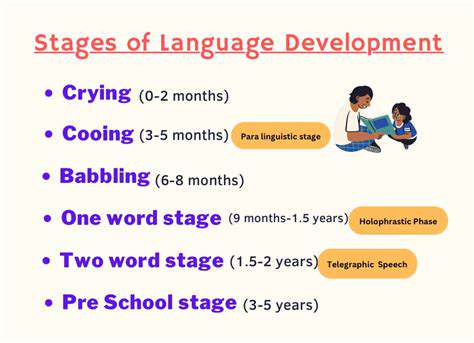
Social-Emotional Development: Building Bonds and Independence
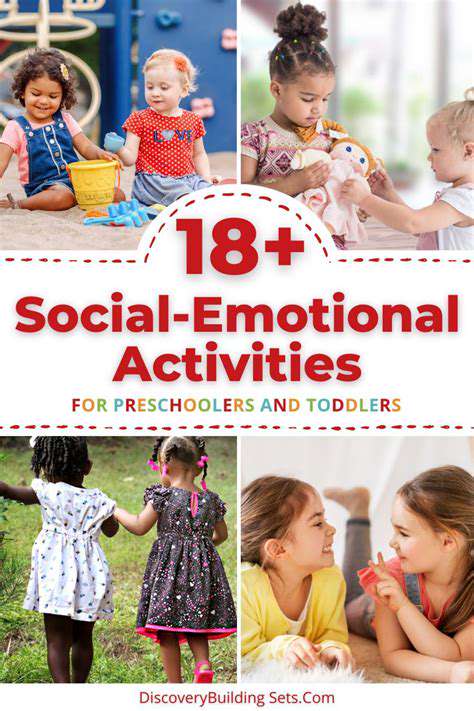
Building Emotional Intelligence in Children
Developing emotional intelligence is crucial for children's overall well-being and future success. It encompasses recognizing, understanding, and managing one's own emotions, as well as empathizing with and responding to the emotions of others. Children who possess strong emotional intelligence are better equipped to navigate social situations, build healthy relationships, and cope with challenges effectively.
Early childhood experiences play a significant role in shaping emotional intelligence. By providing a supportive and nurturing environment, parents and educators can foster the development of essential emotional skills in children. This includes validating their feelings, teaching them healthy ways to express emotions, and helping them understand the perspectives of others.
The Importance of Self-Regulation
Self-regulation is a fundamental aspect of emotional intelligence, involving the ability to manage one's impulses and emotions effectively. This skill is vital for children to succeed in various aspects of their lives, from managing their behavior in school to navigating social interactions.
Developing self-regulation skills helps children to stay focused, handle frustration, and make responsible choices. Parents can support this development by providing clear expectations, consistent routines, and opportunities for problem-solving.
Social Skills and Interactions
Social skills are essential for building positive relationships and navigating the complexities of social interactions. Children learn social skills through observation, practice, and feedback. Strong social skills enable children to communicate effectively, resolve conflicts peacefully, and build healthy relationships with peers and adults.
Encouraging participation in group activities, offering opportunities for collaborative play, and teaching conflict resolution strategies can significantly enhance children's social skills. Learning to take turns, share, and cooperate are vital components of healthy social development.
Empathy and Perspective-Taking
Empathy, the ability to understand and share the feelings of another, is a cornerstone of social-emotional development. Cultivating empathy helps children to connect with others on a deeper level and build stronger relationships. Engaging in activities that encourage perspective-taking, such as role-playing or storytelling, can foster empathy in children.
Reading stories about characters experiencing different emotions, discussing feelings with children, and creating opportunities for them to interact with others from diverse backgrounds are all valuable ways to encourage empathy.
Emotional Expression and Communication
Learning to express emotions in healthy ways is a crucial aspect of social-emotional development. It allows children to communicate their needs and feelings effectively, which is essential for building strong relationships and navigating social situations.
Providing a safe space for children to express their emotions without judgment, teaching them appropriate communication strategies, and validating their feelings are crucial for fostering healthy emotional expression. Encouraging open communication and active listening can create a supportive environment for children to develop their emotional intelligence.
Building Resilience and Coping Mechanisms
Resilience is the ability to bounce back from adversity and overcome challenges. Developing resilience is a vital skill for children, enabling them to navigate difficult situations and maintain a positive outlook. Children learn resilience through experience, support, and the development of coping mechanisms.
Providing children with opportunities to experience challenges, fostering a growth mindset, and modeling healthy coping strategies are vital for building resilience. Encouraging problem-solving skills and teaching children to ask for help when needed are essential components of this process.
